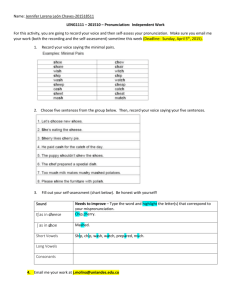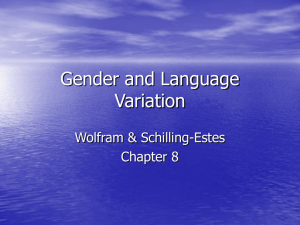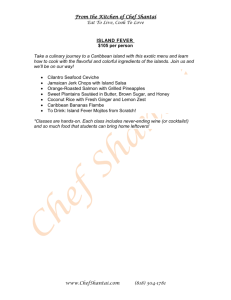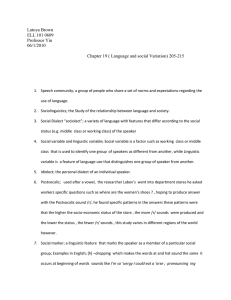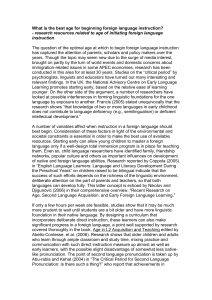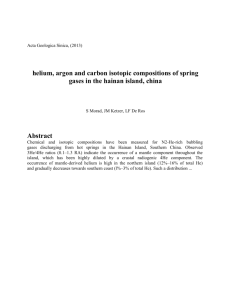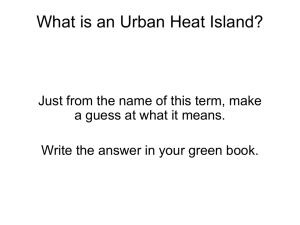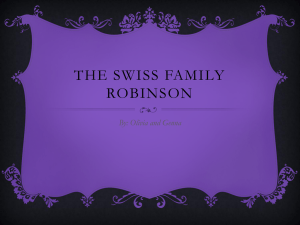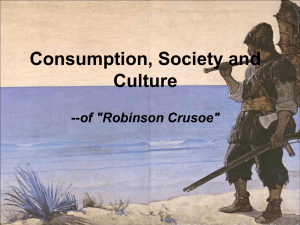Reasons for language change
advertisement
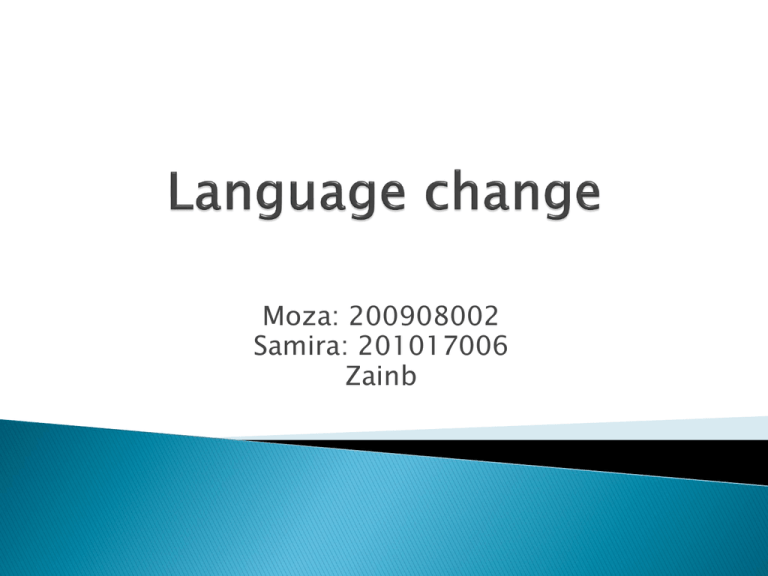
Moza: 200908002 Samira: 201017006 Zainb Variation and Change Post-vocal |r| its spread and its status The spread of vernacular forms How do language changes spread? How do we study language change? Reasons for language change: language varies in three major ways interrelated . All language change has it origins in variation . The possibility of a linguistic change exists as soon as a new form develops and begins to be used alongside an existing form. If the new form spreads, the change is in progress. one area of vocabulary where this is very easy to see is in the slang words used by young people to mean ( really good) In many parts of England and Wales, standard English has lost the pronunciation of ( r ) following vowels in words like star and start. variation and language change, as well as the arbitrariness of the forms which happen to be standard in any community. . these are changes where people are conscious of their social significance as desirable or prestige features of speech. so it appears that post - vocalic (r) appeared first in the speech of upper-middle-class New York, and then gradually filtered down through the different social classes until it reached the speech of the lowest social class in the community. It is easy to understand that a pronunciation which is considered prestigious will be imitated and will spread through a community. some times a vernacular feature in some communities as a reflection of ethnic or social identity such as what happened in Martha's Vineyard Island. Who had lived on Martha's vineyard island for generation and especially those men who fished for their livelihood resented the fact that the island has been invaded by more recent immigrants and especially by summer tourists. Other group on the island with similar attitude imitated the fisherman and so the use of Centralised vowels spread 1- from group to group: changes spread like waves in different directions, and social factors such as age, gender, status and social group affect the rates and directions of change. 2- from style to style: from more formal to more casual, from one individual to another, from one social group to another, and from one word to another. 3- Lexical diffusion : when a sound change begins all the word with a particular vowel doesn't change at once in the speech of a community . Apparent-time studies of language change: it is the study of comparing the speech of people from different age groups, to find out any differences that could indicate change (whether increase or decrease). Studying language change in real time: in this study, the researcher studies the language in a community and then comes back to it after a number of years to study it again, and find out any changes. 1- Social status and language change: members of the group with most social status, for example, tend to introduce changes into a speech community from neighboring communities which have greater status and prestige in their eyes. 2- Gender and change: differences in women's and men's speech are a source of variation which can result in linguistic change. 3- Interaction and language change: interaction and contact between people is crucial in providing the channels for linguistic change (social networks). 4-The media: some researcher belief that media has a great influence on people's speech patterns and new forms.
